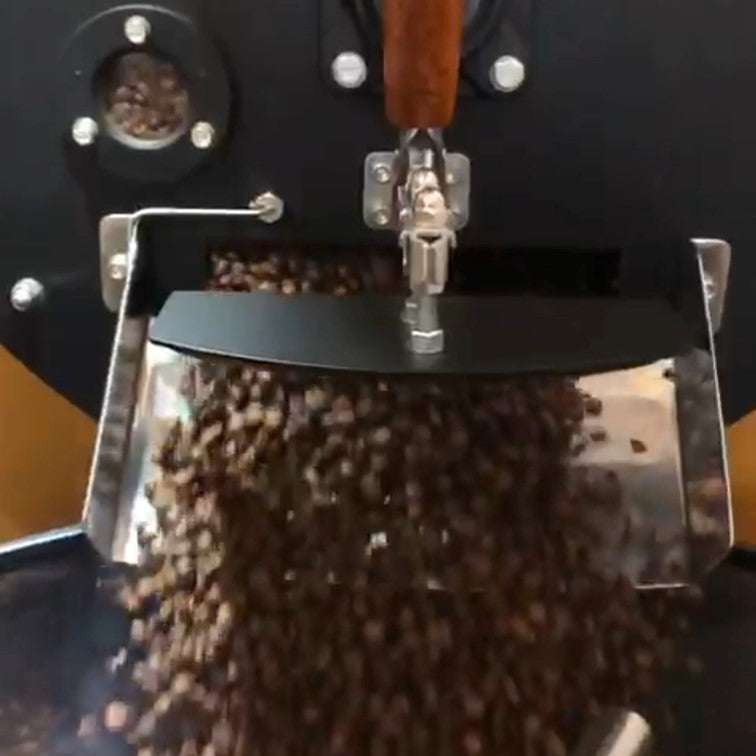Unlocking the Perfect Roast: The Fascinating Science Behind Specialty Coffee Roasting

Coffee is one of the most popular beverages in the world, enjoyed by millions of people every day. However, what many coffee lovers don't know is that the flavor and aroma of coffee are heavily influenced by the roasting process. In this blog, we will take a closer look at the coffee toasting procedure, and explain the care required for specialty coffee in comparison to normal coffee.
Coffee toasting is a crucial step in the coffee production process. It is the process of transforming green coffee beans into the aromatic and flavorful coffee beans that we all know and love. The toasting process involves heating the green beans at high temperatures, causing them to expand and release oils and carbon dioxide. The heat also causes chemical reactions to take place within the beans, resulting in the development of the coffee's unique flavor profile.
The toasting process can be divided into four mains stages:
- Drying,
- Browning,
- First crack, and
- Second crack.
During the drying stage, the coffee beans are heated to around 150°C, causing the moisture within the beans to evaporate. Next, the browning stage begins, during which the temperature is raised to around 180°C. At this stage, the coffee beans start to turn brown as they release their sugars and oils, resulting in the coffee's signature caramelized flavor. The first crack stage occurs when the temperature reaches around 200°C. This is when the beans start to pop and crackle, indicating that they have expanded and released their internal gases. Finally, during the second crack stage, the beans are heated to around 225°C, and the coffee's oils start to emerge and rise to the surface of the beans, resulting in a darker and more intense flavor.
Specialty coffee requires special care during the toasting process to preserve its unique flavor profile. Unlike normal coffee, specialty coffee is made from high-quality beans that have been carefully selected and grown under specific conditions. To ensure that the coffee retains its unique flavor and aroma, specialty coffee roasters take great care to roast the beans to their optimum level, using specific temperature profiles and time intervals. This process ensures that the coffee's distinctive taste and aroma are preserved, and that the beans are not over-roasted or burnt, which can lead to a bitter and unpleasant taste.
Whether you are a coffee aficionado or simply enjoy a cup of coffee in the morning, understanding the toasting process can help you appreciate the nuances of the coffee you are drinking, and perhaps even inspire you to try new and different roasts.
Further reading:
NTSA (National Science Teaching Association): https://www.nsta.org/bean-cup



![[news] ARRUDA & NAPPI in the News: Article by "Il Minuto", Mediterranean News](http://arrudanappi.com/cdn/shop/articles/Il-Minuto-2024.08.08.png?v=1723390140&width=1380)
![[news] Gruppo ARRUDA launches ecommerce ARRUDA & NAPPI™ Coffees](http://arrudanappi.com/cdn/shop/articles/news-16-05-2024.png?v=1716980170&width=1380)

